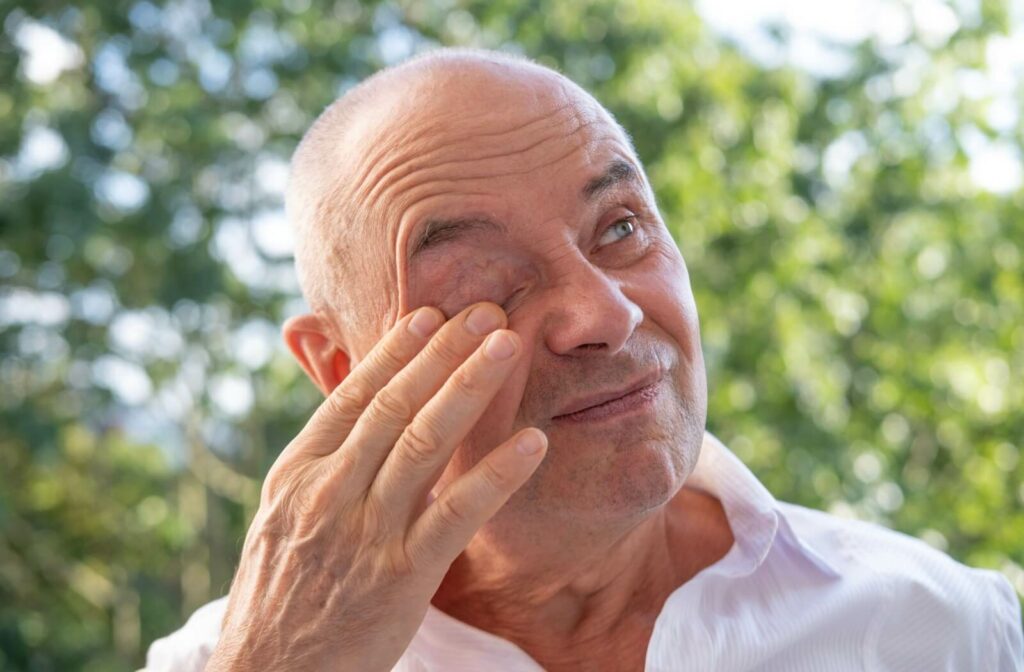Caffeine is one of the most widely consumed psychoactive substances in the world. It’s commonly found in coffee, tea, energy drinks, and even some foods and medications. Known for its stimulating effect on the central nervous system, caffeine helps people stay alert, focused, and energized, making it a go-to choice for many people looking to combat fatigue.
However, its effects go beyond just boosting energy levels. Recent studies suggest that caffeine can also have an impact on your eyesight, potentially influencing eye pressure and other aspects of ocular health. Whether these effects are beneficial or harmful often depends on the individual and the amount of caffeine consumed.
Here are some ways caffeine can affect your vision:
- Increasing eye pressure
- Contributing to dry eye
- May cause eye twitches or spasms
- Can lead to temporary blurred vision
- Reducing blood flow to the optic nerve in high doses
- Increasing the risk of glaucoma
- Improving focus and reaction time
Increases Eye Pressure
Caffeine can temporarily raise eye pressure (IOP), which may be a concern for people with glaucoma. Studies show that drinking at least 180 mg of caffeine (about one to two cups of coffee) can increase IOP by 3.4-3.6 mmHg for about 60-90 minutes. For most people, any increase in eye pressure is small (0 to 4 mmHg) and returns to normal within hours. While caffeine is generally safe for healthy eyes, people with glaucoma or high eye pressure should monitor their intake and talk to their doctor if concerned.
Contributes to Dry Eye
Caffeine has a mild diuretic effect, meaning it can increase urine production, but in moderate amounts, it’s unlikely to cause significant dehydration. Studies show that consuming over 500 mg of caffeine daily (about 5 cups of coffee) may have a noticeable diuretic effect, but up to 400 mg per day is generally safe without causing dehydration.
Dehydration can contribute to dry eye symptoms like irritation, discomfort, and blurred vision by reducing tear production. While caffeine itself does not directly cause dry eyes, excessive intake—especially if it leads to mild dehydration—may play a role in worsening symptoms for some individuals. Staying hydrated is important for overall health, including eye health, so those who experience dry eyes may benefit from balancing caffeine intake with adequate water consumption.
Eye Twitches or Spasms
One common side effect of consuming too much caffeine is eye twitching or spasms. This can be caused by overstimulation of the nerves and muscles in the eye, leading to involuntary contractions. If you experience frequent eye twitching or spasms, it may be a sign that you are consuming too much caffeine. It is important to monitor your intake and consult with your doctor if the issue persists.
Temporary Blurred Vision
Another potential side effect of consuming too much caffeine is temporary blurred vision. This can occur due to changes in blood pressure and blood flow to the eyes, causing a temporary disruption in visual clarity.
If you experience blurred vision after consuming caffeine, it is important to drink plenty of water and allow time for the effects of the caffeine to wear off. If the issue persists, it may be a sign of an underlying eye condition and should be discussed with your eye doctor.
Reduces Blood Flow to the Optic Nerve

Studies have shown that even moderate caffeine consumption can reduce blood flow to the optic nerve and other parts of the eye. Research indicates that 100 mg of caffeine (about 1 cup of coffee) can decrease circulation in the choroid, retina, and optic nerve head, while 200 mg can lower blood oxygenation in the optic nerve capillaries by 12% and reduce blood volume by 23.3% within 30 minutes.
The optic nerve is essential for transmitting visual information to the brain, so changes in blood flow could potentially impact vision, particularly for individuals with conditions like glaucoma. However, the long-term effects of caffeine on vision health are not fully understood, and these temporary changes may not be significant for healthy individuals. If you have an existing eye condition or are at risk, it may be helpful to monitor your caffeine intake and discuss any concerns with your doctor.
Increases Risk of Glaucoma
Glaucoma is a condition in which high pressure within the eye damages the optic nerve and can lead to vision loss if left untreated. While high intraocular pressure (IOP) is a major risk factor, not all cases of glaucoma are caused by elevated eye pressure.
Some studies suggest that high caffeine intake can temporarily increase IOP, particularly in individuals with a genetic predisposition to elevated eye pressure. Research also indicates that those with a strong genetic risk who consume large amounts of caffeine may have a higher likelihood of developing glaucoma. However, findings are mixed, and some studies have found no significant effect of caffeine on glaucoma risk in the general population.
For individuals at risk of or diagnosed with glaucoma, excessive caffeine intake may contribute to increased IOP. It’s important to discuss caffeine consumption with a doctor to determine if adjustments are needed based on personal risk factors.
Improves Focus & Reaction Time
While caffeine may have some negative effects on your eyesight, it can also have some positive impacts. Caffeine has been shown to improve focus and reaction time in individuals who consume it before engaging in activities such as driving or sports. This can be beneficial for tasks that require quick reflexes and visual acuity.
However, it’s important to note that the effects of caffeine on focus and reaction time may vary from person to person and should not be relied upon as a sole solution for improving these skills. Proper rest, nutrition, and eye exercises are also important for maintaining good eyesight.
Protect Your Vision with Total Focus Family Optometry
While caffeine may provide temporary benefits such as increased alertness and improved mood, it is important to be mindful of its potential effects on eye health. Monitoring caffeine intake, staying hydrated, and discussing any concerns with a healthcare professional can help maintain both overall health and vision health.
At Total Focus Family Optometry, we offer comprehensive eye exams and personalized recommendations for maintaining healthy vision. Contact us today to schedule an appointment and learn more about how you can protect your eyesight.




